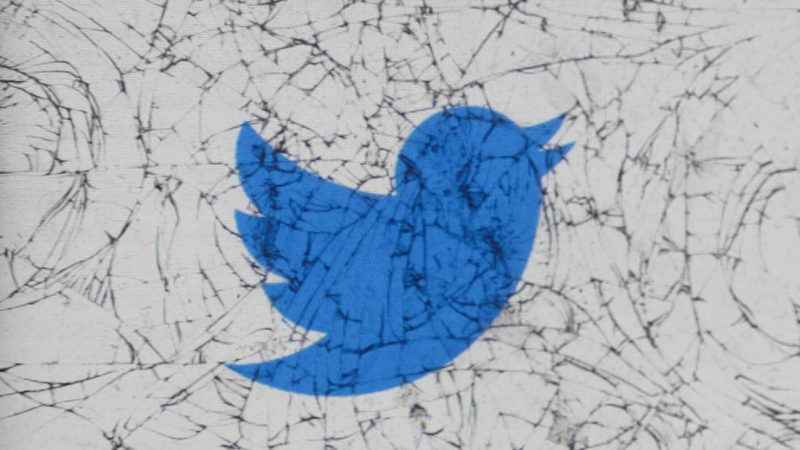COVID-19 Reminds Us: Social Media Is Good, Actually
Will coronavirus help rehabilitate tech's rep?

It's almost hard to believe now, but there was time when Twitter, Facebook, and other forms of "participatory media" were widely heralded as great gifts to public perception and global democracy. For going on nearly half a decade now, the tone on tech companies and social media has shifted to one of suspicion, hostility, grievance, and moral panic. But as COVID-19 continues to spread around the world and as many governments continue to mishandle things, people are starting to remember why the platforms we love to hate are important after all.
"All through February and early March, the voices of doctors and nurses on social media provided a vital antidote to those of confused and complacent political leaders embodied by President Trump," noted Ben Smith in The New York Times yesterday.
Social media have also been providing news from early outbreak zones across the globe, as users widely disseminate stories from foreign news outlets, statements from foreign leaders, and first-hand accounts from residents of affected areas abroad.
These snaphots helped give Americans a better sense of the scope of the threat posed by COVID-19 at a time when the messages coming from official channels were conflicting and confusing. They also illustrated the ways in which various social responses could play out—giving credence to calls here for "social distancing" and spurring measures to make room in medical facilities.
Around the U.S., communities still seem to be experiencing widely different reactions to the pandemic, with some areas seeing runs on grocery stores and empty streets while in others things look pretty normal. This will likely change rapidly, as more businesses close their doors voluntarily—and as more governments order them to close whether they want to or not. But for now, one thing that's been noticeable is how quickly the mood on Twitter, Reddit, etc. embraced voluntary social distancing, especially in comparison to the mood in the "real world."
Some will suggest that this has bred unnecessary fear, and perhaps time will bear that interpretation out. But the overall mood doesn't seem to be one of sheer panic so much as people helping people by sharing their own experiences.
We've seen people's frustrations about the futility of trying to get tested in early outbreak areas, spilling over into stories of how academics, philanthropists, and private companies are all pitching in to overcome bad federal planning with regard to not just tests but other crucial items. People sharing homemade hand sanitizer recipes, tips on where to find stocked store shelves, links to local places that needed donations, ways to help elderly loved ones or neighbors prepare, and guides on how to tell COVID-19 symptoms from common colds. People informed one another (albeit not always in the nicest terms) on how asymptomatic people can spread the coronavirus, why "flattening the curve" matters, and how to help America's disease curve look more like South Korea's than Italy's.
We've also seen people shaming crowds still physically gathered at bars and social venues. Much of this has taken too stern or smug a tone for me; I think it's important to remember that as of a few days ago, leaders were still widely advocating that those without symptoms keep patronizing local businesses (an idea officials in some communities are still pushing). Not everyone has been getting the same steady diet of escalating horrors that the extremely online are. Nonetheless, the social shaming is arguably serving an important function now too, as long as it stays away from singling out individuals.
Now that state and local governments are ordering businesses to close early or entirely, social media will fill another important function: documenting police attempts to enforce these rules. Unfortunately, curfew and quarantine enforcement inevitably mean new opportunities for police overreach, profiling, and violence. The best hope Americans have of lessening this is YouTube, Instagram, and other sites that make it easier to bear witness.
"After four years in which social media has been viewed as an antisocial force," Smith suggests, "the crisis is revealing something surprising, and a bit retro: Twitter, Facebook, YouTube and others can actually deliver on their old promise to democratize information and organize communities." He talked to leaders at these companies, plus Pinterest and Snapchap, about how they have been handling coronavirus misinformation.
Misinformation still abounds on these platforms, of course. But so do opportunities to correct it—at least in a relatively free society. The president himself may be among those downplaying the disease's seriousness, but anyone with a Twitter account can publicly push back at him. In China, where government tightly regulates digital platforms, we've seen authorities use social media to spread damaging propaganda that citizens aren't allowed to dispute.
Meanwhile, technology and digital media companies are playing another important, if somewhat less lofty, function: providing entertainment, diversion, and a non-disease-spreading social outlet to the increasing number of people electing or forced to stay in. It is, at least, the best of all times to be stuck at home.
No single social platform or user-generated content company will ever be perfect in terms of fighting the right battles and avoiding the wrong biases. Nonetheless, in times of crisis and change, they're truly revolutionary and vital.
It's probably naive to think any of this will affect the politically-driven efforts to impose controls on tech companies, clamp down on privacy technology, and suppress online speech. But the COVID-19 pandemic should remind us why it's so important to fight those forces.


Show Comments (35)